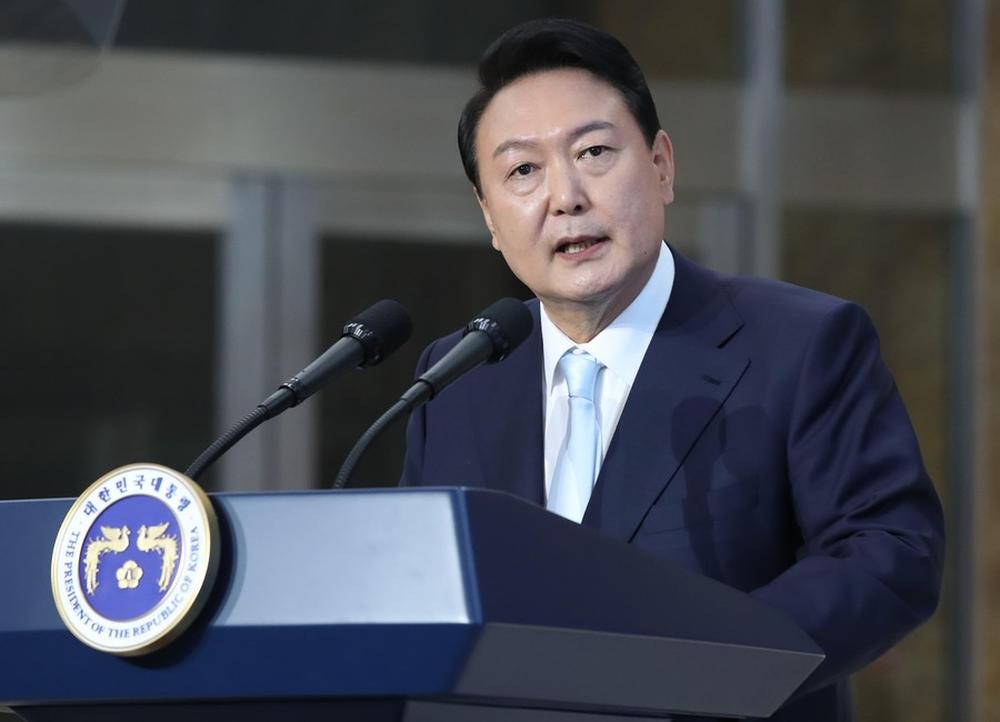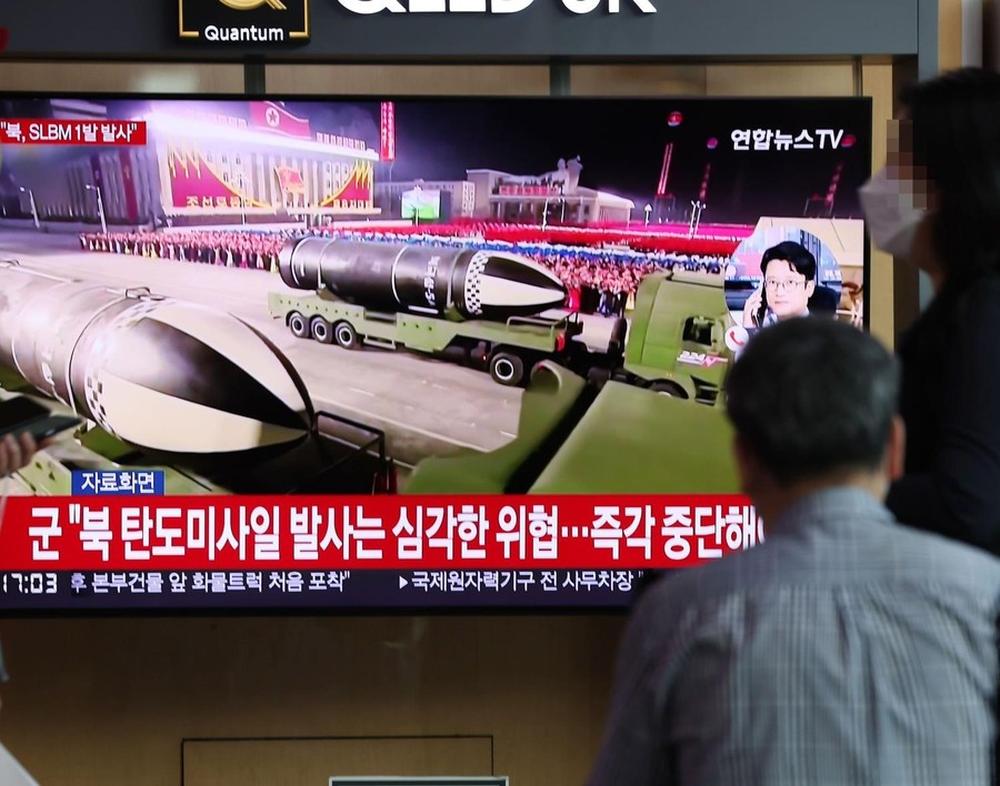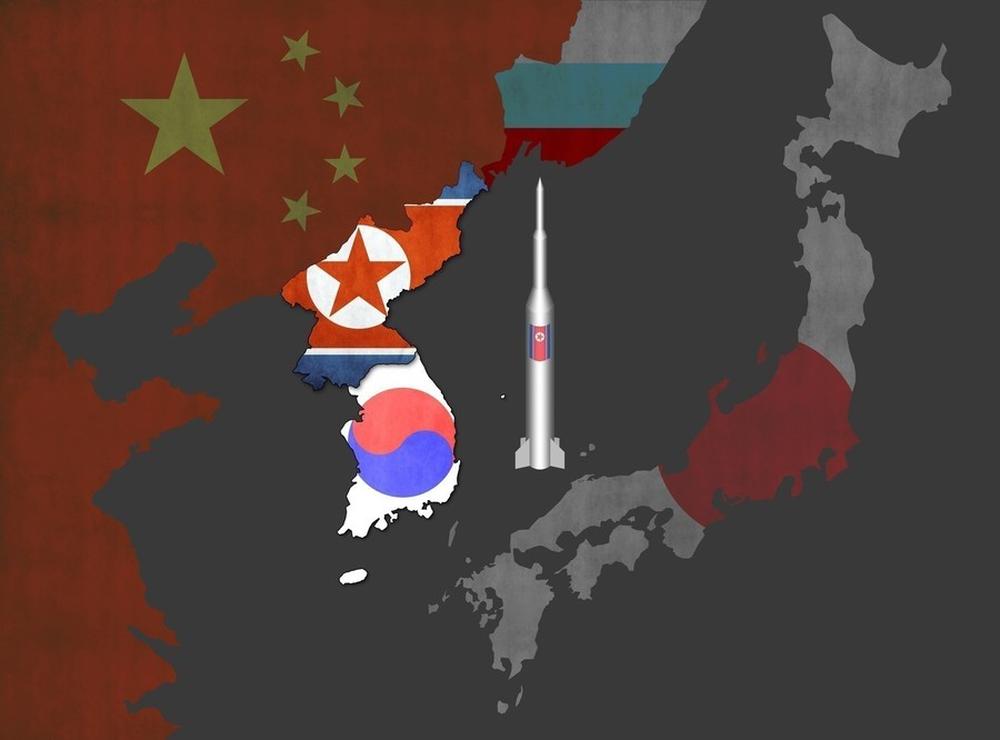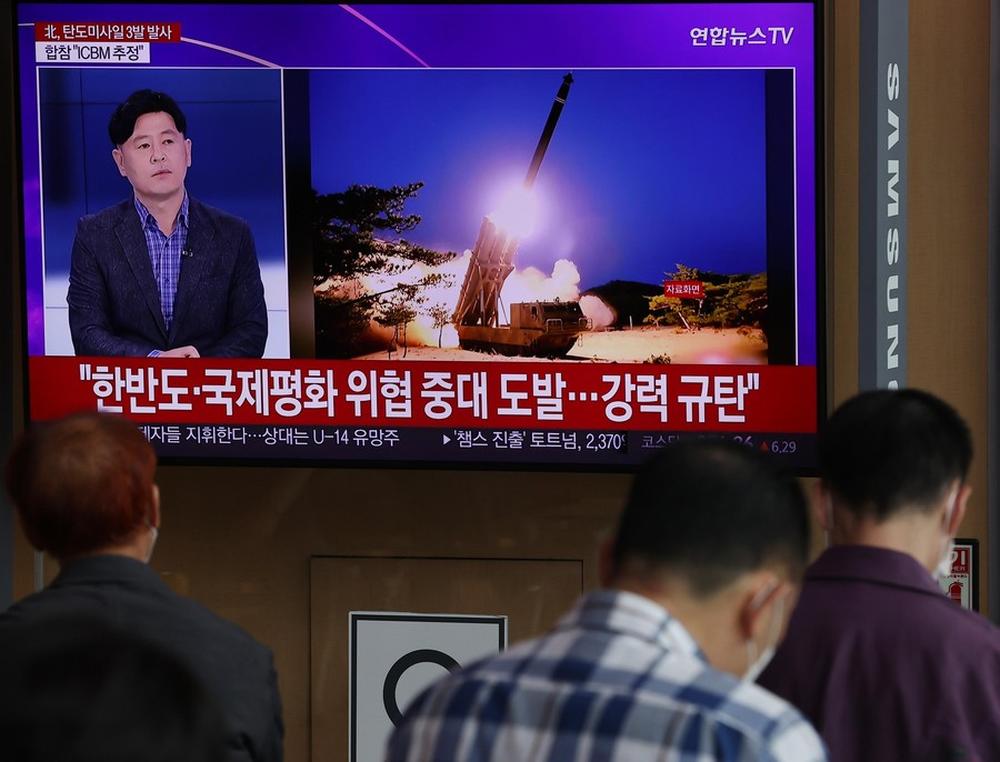- #Inter-Korean Relations
- #North Korea
- #US Foreign Policy

► Even though North Korea brands the United States as its sworn enemy, it is ironically seeking U.S. attention by increasing the level of military provocations.
► The Yoon administration’s enhanced cooperation with the Biden administration will push Korea’s importance higher up North Korea’s strategic calculus.
North Korea’s Unsuccessful Attempt to Attract U.S. Attention
On May 10, 2022, President Yoon Suk Yeol was inaugurated as the 20th president of the Republic of Korea. On May 12, two days after his inauguration, North Korea test launched three short-range ballistic missiles—a total of six ballistic missile tests since he was first announced president. It is worth noting that North Korea’s missile tests until 2021 involved mostly short-range ballistic missiles. Starting in February of this year, however, the North has begun to test mid-range ballistic missiles.
Since the second US-DPRK summit in Hanoi in February 2019, which broke down without an agreement, the North has looked to dominate the security environment around the Korean Peninsula with its modern short-range ballistic missiles. Starting this year, however, it has returned to its 2017 routine, threatening the international community with ICBM tests. This can only be construed as North Korea’s dangerous attempt to attract the attention of the United States.
Unfortunately, the Biden administration, since its inauguration in 2021, has shown considerably less interest in North Korea, especially compared to the Trump administration. Much of this has to do with the unfavorable international security environment that the United States faces. For example, the US-China strategic rivalry has evolved into a prolonged competition, starting from a tariff war to a dispute about freedom of navigation; from a dispute about freedom of navigation to a technology competition; and from a technology competition to a race to dominate the global supply chain. The United States withdrew from Afghanistan to better deal with China’ pressure tactic. With Russia’s invasion of Ukraine, however, the United States faces another crisis in its hands.
Even though North Korea brands the United States as its sworn enemy, it is ironically seeking U.S. attention by increasing the level of military provocations. The Kim Jong-un regime appears to believe that the United States remains the only country with the power to decide the fate of its regime. North Korea’s ballistic missiles tests involving the Hwasong-15, the failed Hwasong-17, and SLBM are all part of this effort to pressure the United States.
Inauguration of the Yoon Administration and Implications for the North Korean Regime
Since the 2019 US-DPRK summit in Hanoi, the North Korean regime has unilaterally turned a blind eye to the Korean government. On March 3, 2020, Kim Yo-jong, First Vice Director of North Korea's Central Committee of the Ruling Workers' Party, officially released a statement on state media insulting President Moon Jae-in—one of the most generous Korean presidents in terms of his/her policy towards the North Korean regime—calling him a “frightened dog” and “a three year old child.” When the Moon administration secretly invited Chairman Kim Jong-un to the ROK-ASEAN summit in Busan and expressed interests in dispatching a special envoy, the North publicized and rejected the South’s offer.
When we look back at North Korea’s blatant disregard for the South’s diplomatic initiatives and its concerted efforts to tilt the negotiations with the United States in its favor, the inauguration of the conservative Yoon administration may not appear to be a significant change. For the Kim regime, however, the start of a conservative administration implies significant changes, especially involving its policy on the Korean Peninsula.
During the Moon administration, North Korea was able to concentrate solely on its negotiations with the United States. Even though negotiations failed, it was able to negotiate with the United States without worrying about Korea’s strategic decisions and approach. Even though the Moon administration emphasized its role as a central player and being in the “driver’s seat,” in reality, it was just another bystander in the US-DPRK negotiations. Korea’s concerns and its position were not part of North Korea’s strategic considerations because the North realized that Korea’s strategic decisions had no bearing on the United States’ approach to nuclear negotiations with the North. The launch of the Yoon administration, however, has already shown signs that North Korea’s negotiation strategy has been changed from a one-dimensional affair to multi-dimensional one.
Under the new Korean president, ROK-US relations are already being revamped. When the People Power Party’s candidate Yoon Suk Yeol won the presidential election, he not only received a phone call from President Biden that day but the two will meet in person when the ROK-US summit takes place just ten days after his inauguration. These developments, however, do not come as a surprise given candidate Yoon’s pledges to return to a more “normalized” ROK-US alliance during his campaign trails.
Predicting North Korea’s Policy Towards ROK
How will North Korea react to the inauguration of the Yoon administration? As mentioned above, the most concerning development for North Korea will involve the strengthening of ROK-US cooperation vis-à-vis the North. The Yoon administration’s enhanced cooperation with the Biden administration will push Korea’s importance higher up North Korea’s strategic calculus.
As such, North Korea may look to preemptively curb the influence of the South by increasing the level of its nuclear threat, and hoping that it will force the Biden administration to come to the negotiating table. This is a likely scenario especially since Kim is unlikely to change his past ways. It is also unlikely that a government official will risk his/her life in a dictatorial bureaucratic political system and propose a new way forward.
The most important factor now is time. Given the North’s political system, Kim Jong-un has unlimited time. On the other hand, a Korean president only has five years in office and Korean public opinion is another important component of Korea’s policy towards the North. Fully understanding Korea’s limitations, North Korea is likely to raise tensions on the Korean Peninsula and force the conservative administration to withdraw its hardline policy.
The Yoon Administration’s North Korea Policy
During his inauguration speech, President Yoon declared that he will leave the door open for talks with North Korea in order to peacefully resolve the nuclear issue. He also mentioned an “audacious plan” to dramatically improve the North Korean economy and the North Korean people’s quality of life if North Korea suspends it nuclear development and engages in pragmatic efforts to denuclearize. In response, some conservative experts have criticized his speech for lack of change, especially compared to the Moon administration’s approach to North Korea. However, his approach is a necessary one in order to manage inter-Korean relations and better deal with the North’s efforts destabilize the conservative Korean presidency. Even with the understanding that President Yoon’s North Korea policy will take shape following the ROK-US summit, we can outline his approach in three principles, based on his national political agenda.
First, the Yoon administration will invest diplomatic efforts to bring about denuclearization of North Korea rather than denuclearization of the Korean Peninsula. It will start by announcing its diplomatic cooperation with the United States, Japan, and China. It will also be consistent in its effort to present a post-denuclearization blueprint and, thereby, increasing the likelihood of North Korea’s strategic decision. The longer and darker the ‘shadow of the future,’ the greater the likelihood of cooperation.
Second, in addition to taking a consistent diplomatic approach, the Yoon administration will systematically develop and implement military capabilities to better respond to North Korean threats. This will not be a knee-jerk reaction to North Korea’s nuclear provocations but rather a planned, long-term response mechanism.
Third, even of the nuclear issue remains unresolved, Korea will actively look to provide—within the boundaries of international law—humanitarian assistance as well as support to improve the lives of the North Korean people.
The Yoon administration will look to utilize these three principles to bring about sustainable peace on the Korean Peninsula and to counter any efforts by North Korea to destabilize the conservative presidency.



